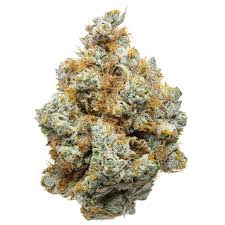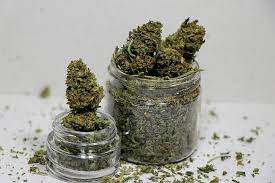In the realm of cannabinoids, Delta 8 THC has emerged as a subject of curiosity and controversy. But is it merely another synthetic compound, or does it hold deeper significance? Let's delve into the world of Delta 8 THC to unravel its mysteries and understand its true nature.

Table of Contents
| Sr# | Headings |
|---|---|
| 1. | What is Delta 8 THC? |
| 2. | Origin and Legal Status |
| 3. | Natural vs. Synthetic |
| 4. | Production Process |
| 5. | Effects and Benefits |
| 6. | Safety Concerns |
| 7. | Regulatory Landscape |
| 8. | Consumer Trends |
| 9. | Comparing Delta 8 with Other Cannabinoids |
| 10. | Future Prospects |
1. What is Delta 8 THC?
Delta 8 THC, short for Delta-8-tetrahydrocannabinol, is a naturally occurring cannabinoid found in cannabis plants. It shares a similar molecular structure with Delta 9 THC, the psychoactive compound most commonly associated with marijuana.
Delta 8 THC is gaining attention for its milder psychoactive effects compared to Delta 9 THC, making it a potential alternative for individuals seeking therapeutic benefits without intense intoxication.
2. Origin and Legal Status
Originally, Delta 8 THC was present in trace amounts in cannabis plants. However, advancements in extraction and synthesis techniques have made it more accessible. As for its legal status, it occupies a gray area due to variations in regulations across different jurisdictions.
Legal ambiguity surrounds Delta 8 THC, with some states explicitly banning it, while others have yet to address its legality.

3. Natural vs. Synthetic
The distinction between natural and synthetic Delta 8 THC is crucial. Natural Delta 8 THC is derived directly from hemp or cannabis plants, maintaining the integrity of its molecular structure. Conversely, synthetic Delta 8 THC is artificially produced in laboratories, often involving chemical processes.
Natural vs. synthetic Delta 8 THC raises questions about purity, safety, and legality, prompting consumers to scrutinize product origins.
4. Production Process
The production process of Delta 8 THC varies depending on whether it's derived from natural or synthetic sources. Natural extraction involves isolating Delta 8 THC from cannabis or hemp plants through methods like distillation or chromatography. On the other hand, synthetic production entails chemical synthesis, where precursor molecules are manipulated to create Delta 8 THC.
Production methods significantly impact the quality and composition of Delta 8 THC products, influencing their effects and safety profiles.
5. Effects and Benefits
Delta 8 THC offers a range of effects and potential benefits, albeit with differences compared to Delta 9 THC. Consumers report experiencing mild euphoria, relaxation, and pain relief without the intense high associated with Delta 9 THC.
Potential benefits of Delta 8 THC include alleviating nausea, stimulating appetite, and reducing anxiety, although more research is needed to validate these claims.
6. Safety Concerns
While Delta 8 THC is generally considered safe when consumed responsibly, concerns exist regarding product quality and regulation. Due to its growing popularity, the market is flooded with varying qualities of Delta 8 THC products, leading to potential health risks.
Quality control and regulatory oversight are essential to ensure consumer safety and mitigate potential adverse effects associated with Delta 8 THC consumption.
7. Regulatory Landscape
The regulatory landscape surrounding Delta 8 THC is complex and evolving. With discrepancies in laws between states and countries, navigating the legal framework can be challenging for consumers and businesses alike. Some jurisdictions have implemented strict regulations on Delta 8 THC, while others remain more lenient or ambiguous.
Regulatory challenges underscore the need for clear and consistent guidelines to govern the production, distribution, and consumption of Delta 8 THC products.
8. Consumer Trends
Despite regulatory uncertainties, consumer interest in Delta 8 THC continues to grow. Its unique properties and potential benefits have captured the attention of individuals seeking alternative wellness solutions. Online forums, social media, and word-of-mouth recommendations contribute to the proliferation of Delta 8 THC products in the market.
Consumer preferences drive innovation and market trends, shaping the future landscape of Delta 8 THC products and consumption patterns.
9. Comparing Delta 8 with Other Cannabinoids
Understanding how Delta 8 THC compares to other cannabinoids provides valuable insights into its characteristics and potential applications. While Delta 9 THC remains the most well-known psychoactive compound in cannabis, Delta 8 THC offers a nuanced experience with milder effects.
Comparative analysis sheds light on the unique properties and therapeutic potential of Delta 8 THC within the broader spectrum of cannabinoids.

10. Future Prospects
As research on cannabinoids advances and regulatory frameworks evolve, the future of Delta 8 THC remains uncertain yet promising. Scientific exploration, coupled with consumer demand and regulatory developments, will shape the trajectory of Delta 8 THC in the years to come.
Future prospects hinge on ongoing research, regulatory clarity, and market dynamics, influencing the integration of Delta 8 THC into mainstream healthcare and wellness practices.

Conclusion
In conclusion, Delta 8 THC represents a fascinating intersection of science, regulation, and consumer demand. While its origins may be rooted in cannabis, its journey to prominence raises questions about safety, legality, and efficacy. As we navigate the complex landscape of cannabinoids, understanding the nuances of Delta 8 THC is essential for informed decision-making and responsible consumption.
FAQs (Frequently Asked Questions)
-
Is Delta 8 THC legal?
- The legality of Delta 8 THC varies by jurisdiction. Some states have explicitly banned it, while others have yet to address its status.
-
How does Delta 8 THC differ from Delta 9 THC?
- Delta 8 THC offers milder psychoactive effects compared to Delta 9 THC, making it potentially more manageable for some users.
-
Are there any side effects of Delta 8 THC?
- While generally considered safe, Delta 8 THC may cause side effects such as dry mouth, red eyes, and increased heart rate, especially at higher doses.
-
Can Delta 8 THC be detected in drug tests?
- Yes, Delta 8 THC can be detected in drug tests designed to identify THC metabolites. It's important to consider this when using Delta 8 THC products.
-
Is Delta 8 THC addictive?
- Research on the addictive potential of Delta 8 THC is limited. However, like other cannabinoids, it may carry a risk of psychological dependence with long-term, heavy use.
